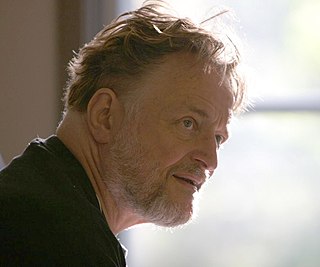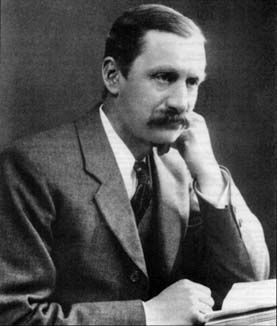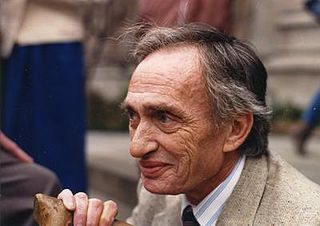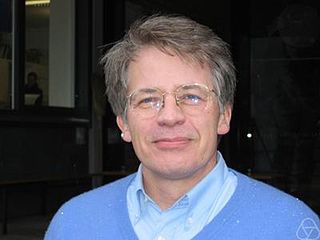
John Horton Conway was an English mathematician active in the theory of finite groups, knot theory, number theory, combinatorial game theory and coding theory. He also made contributions to many branches of recreational mathematics, most notably the invention of the cellular automaton called the Game of Life.

In the area of abstract algebra known as group theory, the monster group M (also known as the Fischer–Griess monster, or the friendly giant) is the largest sporadic simple group, having order
808,017,424,794,512,875,886,459,904,961,710,757,005,754,368,000,000,000
= 246 · 320 · 59 · 76 · 112 · 133 · 17 · 19 · 23 · 29 · 31 · 41 · 47 · 59 · 71
≈ 8×1053.

Jacques Tits was a Belgian-born French mathematician who worked on group theory and incidence geometry. He introduced Tits buildings, the Tits alternative, the Tits group, and the Tits metric.

William Burnside was an English mathematician. He is known mostly as an early researcher in the theory of finite groups.

In the mathematical classification of finite simple groups, there are 26 or 27 groups which do not fit into any infinite family. These are called the sporadic simple groups, or the sporadic finite groups, or just the sporadic groups.

Sidney Richard Coleman was an American theoretical physicist noted for his research in high-energy theoretical physics.

Irving Ezra Segal (1918–1998) was an American mathematician known for work on theoretical quantum mechanics. He shares credit for what is often referred to as the Segal–Shale–Weil representation. Early in his career Segal became known for his developments in quantum field theory and in functional and harmonic analysis, in particular his innovation of the algebraic axioms known as C*-algebra.

William Gilbert Strang is an American mathematician known for his contributions to finite element theory, the calculus of variations, wavelet analysis and linear algebra. He has made many contributions to mathematics education, including publishing mathematics textbooks. Strang was the MathWorks Professor of Mathematics at the Massachusetts Institute of Technology. He taught Linear Algebra, Computational Science, and Engineering, Learning from Data, and his lectures are freely available through MIT OpenCourseWare.

Israel Nathan Herstein was a mathematician, appointed as professor at the University of Chicago in 1951. He worked on a variety of areas of algebra, including ring theory, with over 100 research papers and over a dozen books.

Robert Louis Griess, Jr. is a mathematician working on finite simple groups and vertex algebras. He is currently the John Griggs Thompson Distinguished University Professor of mathematics at University of Michigan.

Jerrold Eldon Marsden was a Canadian mathematician. He was the Carl F. Braun Professor of Engineering and Control & Dynamical Systems at the California Institute of Technology. Marsden is listed as an ISI highly cited researcher.

Father Magnus J. Wenninger OSB was an American mathematician who worked on constructing polyhedron models, and wrote the first book on their construction.

Daniel Segal is a British mathematician and a Professor of Mathematics at the University of Oxford. He specialises in algebra and group theory.

Leonid Hurwicz was a Polish–American economist and mathematician, known for his work in game theory and mechanism design. He originated the concept of incentive compatibility, and showed how desired outcomes can be achieved by using incentive compatible mechanism design. Hurwicz shared the 2007 Nobel Memorial Prize in Economic Sciences for his seminal work on mechanism design. Hurwicz was one of the oldest Nobel Laureates, having received the prize at the age of 90.
Narasimhaiengar Mukunda is an Indian theoretical physicist.
Douglas Norman "Doug" Arnold is a mathematician whose research focuses on the numerical analysis of partial differential equations with applications in mechanics and other fields in physics. He is McKnight Presidential Professor of Mathematics at the University of Minnesota.
Bhama Srinivasan is a mathematician known for her work in the representation theory of finite groups. Her contributions were honored with the 1990 Noether Lecture. She served as president of the Association for Women in Mathematics from 1981 to 1983.

Bernd Fischer was a German mathematician.

Andy Roy Magid is an American mathematician.
Katrin Tent is a German mathematician specializing in group theory, the symmetries of groups, algebraic model theory, and finite geometry. She is a professor of mathematics and mathematical logic at the University of Münster.















